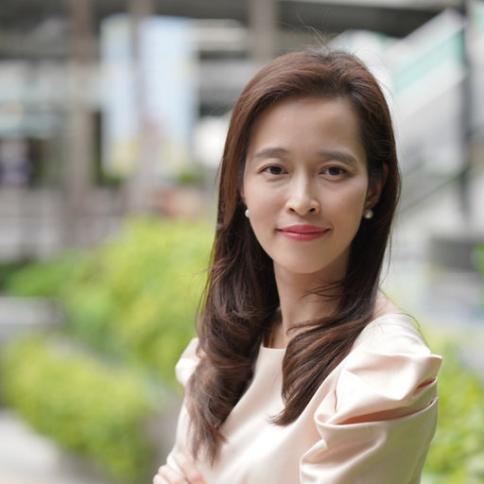
Cancer in My Community is a Cancer.Net Blog series that shows the global impact of cancer and how people work to care for those with cancer in their region. Krittiya Korphaisarn, MD, is an associate professor and medical oncologist at the Faculty of Medicine Siriaj Hospital in Bangkok, Thailand, an academic institution and the largest hospital in Thailand. Dr. Korphaisarn is involved in conducting many clinical studies as a principal investigator and has published many original articles in peer-reviewed journals. Her research interests include gastrointestinal cancer, lung cancer, and translational research.
Why I care for people with cancer
For many, “cancer” is a scary word that they think means pain, suffering, and death. Sometimes, people think there is no hope when they or a loved one receive a cancer diagnosis. When I was a medical student, I assumed that most people with cancer were going to die. But as I advanced in my studies, I realized that cancer is not a death sentence. We may not be able to cure all cancers, but we consider many cancers to be chronic, treatable conditions. The words of Dr. Edward Livingston Trudeau, who said, “To cure sometimes, to relieve often, to comfort always,” serve as a reminder that my role as a medical oncologist must be to provide the best care for my patients, regardless of whether I can cure them.
As a medical oncologist, I am always the first doctor to tell my patients about their cancer. I am honored to be the one who takes care of them. It is a special privilege to be trusted and involved in a person’s life during their difficult times. Helping my patients to cope with their illness and to live their lives mindfully gives me a special sense of fulfillment. My motivation and commitment is to use all the resources available to me to provide the best cancer care for my patients.
What cancer is like in Thailand
Just as in much of the rest of the world, cancer is a growing concern in Thailand. Breast cancer, cervical cancer, colorectal cancer, liver cancer, and lung cancer contribute to over half of the cancer cases in my country, according to the World Health Organization (WHO). Liver cancer is the most common cancer in men, followed by lung cancer, colorectal cancer, and prostate cancer. In women, breast cancer is the most common, followed by colorectal cancer, cervical cancer, and liver cancer.
There are several problems in cancer care in Thailand, including a shortage of medical oncologists. Approximately 200,000 people are diagnosed with cancer each year in Thailand, but there are only 300 medical oncologists to treat them. A significant proportion of people with cancer in Thailand, especially those in rural areas, receive inadequate cancer care. In addition, similar to other low- to middle-income countries, the newest treatments are not affordable for many patients, which limits who can receive them. Another major problem is that a large number of Thai people with cancer are diagnosed with advanced disease. This leads to a lower chance of a cure, poorer treatment outcomes, and a poorer quality of life. As cancer care providers in Thailand, we need to adjust our treatment strategies in order to achieve the best care under limited resources.
How cancer is treated in Thailand
In Thailand, a multidisciplinary team of cancer specialists works together to provide comprehensive cancer care and treatment to people with cancer. But even if advanced treatments are available to patients, it is not uncommon for them to use complementary and alternative medicines, particularly herbal and dietary supplements.
Genomic medicine is an emerging approach that has already shown benefit in improving how we diagnose and choose treatments for people with cancer. However, access to genetic testing in Thailand is limited, mainly due to its high cost. In this regard, in 2019, the Thai government launched the Genomics Thailand Initiative to sequence the genomes of 10,000 Thai people with cancer and build systems to use that genomic information. The project aims to help us better understand the complexity and advances in how genetics can inform the diagnosis and treatment of cancer. With the support of this initiative, we are hoping to enhance the development of effective care for all of our patients in Thailand.
Where people with cancer can find local resources and support
There are several online resources that are produced and shared by nonprofit organizations in Thailand, such as the National Cancer Institute and the Thai Society of Clinical Oncology.
Additionally, patient education and support resources are available through the websites of hospitals, including Siriraj Cancer Center, Ramathibodi Comprehensive Cancer Center, and King Chulalongkorn Memorial Hospital.
The author has no relevant relationships to disclose.
